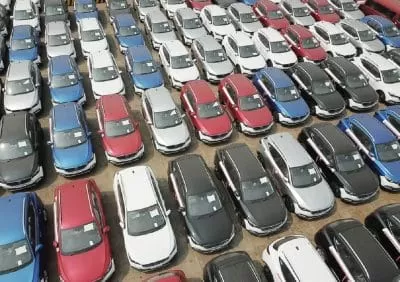This week, drivers in Israel were met with an unpleasant surprise as the cost of annual vehicle inspections increased by approximately 23%. This sudden price hike has left many car owners frustrated and wondering why such a significant increase was implemented.
The annual vehicle inspection, also known as the «tekhon» in Hebrew, is a mandatory requirement for all vehicles in Israel. It ensures that cars are safe to drive and meet the necessary environmental standards. The inspection includes checking the vehicle’s emissions, brakes, lights, and overall condition. It is a crucial step in maintaining road safety and reducing air pollution.
The decision to raise the cost of the annual vehicle inspection was made by the Israeli Ministry of Transport, citing the need for additional funds to cover the rising costs of conducting these inspections. The Ministry also stated that the increase is necessary to improve the quality of the inspections and ensure that they are conducted thoroughly and efficiently.
While the Ministry’s intentions may be well-meaning, the sudden increase has caused an uproar among car owners. Many have taken to social media to express their frustration and disappointment, with some even calling for a boycott of the annual inspection altogether. The price increase has also sparked debates about the government’s priorities and whether the additional funds could have been allocated to other pressing issues.
One of the main concerns raised by car owners is the lack of transparency surrounding the price hike. Many argue that they were not given any prior notice or explanation for the increase, leaving them feeling blindsided and taken advantage of. Some have also pointed out that the increase comes at a time when the country is still recovering from the economic impact of the pandemic, making it even more challenging for them to afford the higher cost.
Despite the backlash, the Ministry of Transport has defended its decision, stating that the cost of the annual vehicle inspection in Israel is still relatively low compared to other countries. They also emphasized that the increased funds will go towards improving the inspection process, ultimately benefiting car owners in the long run.
However, for many car owners, the increase in the cost of the annual vehicle inspection is a significant burden, especially for those on a tight budget. Some have even expressed concerns about the impact it will have on low-income families who rely on their vehicles for transportation to work and school.
In response to these concerns, the Ministry of Transport has announced that they will be implementing a payment plan option for those who cannot afford to pay the full amount upfront. This will provide some relief for car owners, but it does not address the root issue of the sudden and significant increase in the first place.
While the increase in the cost of the annual vehicle inspection may seem like a small inconvenience, it highlights a more significant issue of the rising cost of living in Israel. In recent years, the country has seen an increase in the prices of various goods and services, making it challenging for many families to make ends meet. The increase in the cost of the annual vehicle inspection is just another added expense that has caught many car owners off guard.
On a positive note, the increase in the cost of the annual vehicle inspection may also serve as a reminder for car owners to prioritize regular maintenance and upkeep of their vehicles. By ensuring that their cars are in good condition, they can potentially avoid costly repairs and pass the annual inspection with ease.
In conclusion, the recent increase in the cost of the annual vehicle inspection in Israel has caused frustration and disappointment among car owners. While the Ministry of Transport has stated that the increase is necessary to improve the quality of the inspections, the lack of transparency and the timing of the price hike have left many feeling dissatisfied. It is essential for the government to address these concerns and work towards finding a more balanced and fair solution for all car owners.







